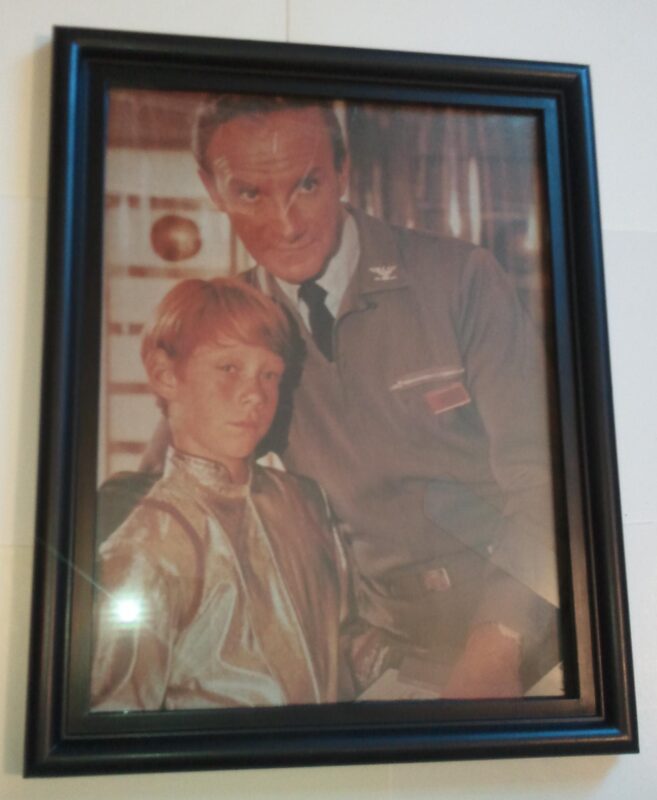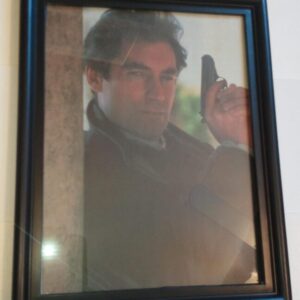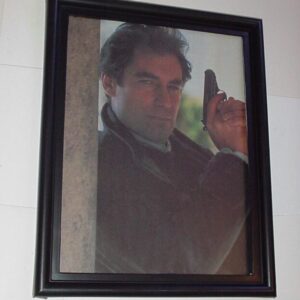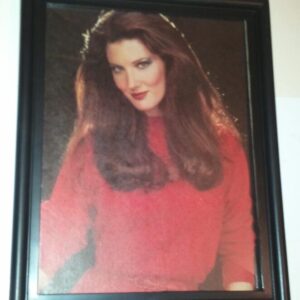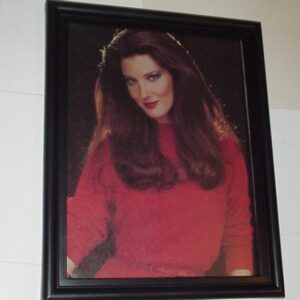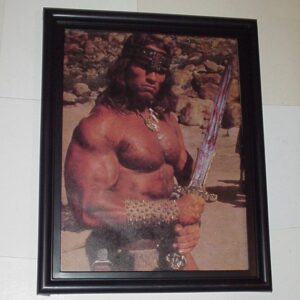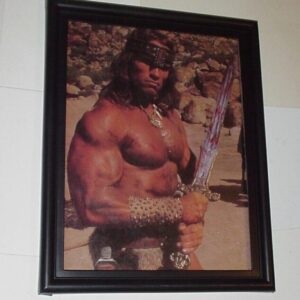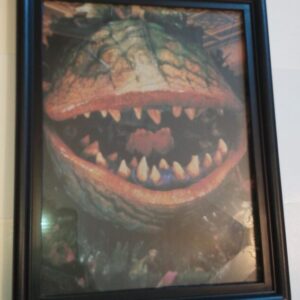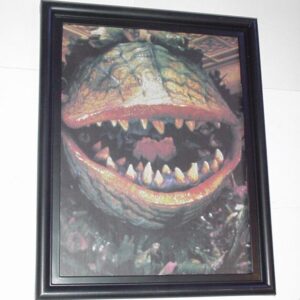Description
Lost in Space is an American science fiction television series created and produced by Irwin Allen, filmed by 20th Century Fox Television, and broadcast on CBS. The show ran for three seasons, with 83 episodes airing between September 15, 1965, and March 6, 1968. The first television season was filmed in black and white, but the remainders were filmed in color. In 1998, a Lost in Space movie, based on the television series, was released.
Though the original television series concept centered on the Robinson family, many later story lines focused primarily on Dr. Zachary Smith, played by Jonathan Harris. Originally written as an utterly evil but extremely incompetent would-be saboteur, Smith gradually becomes the troublesome, self-centered, incompetent foil who provides the comic relief for the show and causes most of the episodic conflict and misadventures. Smith was not in the un-aired pilot and neither was the robot. Of interesting note was that the plot point causing the Space Family Robinson to become “Lost in Space” was that it was a meteor storm in the un-aired pilot put the Jupiter Two off course. In the first aired episode, Smith’s sabotage and unintended presence caused them to go off course so that they encountered the meteors, introducing an element of proximate causation as to Smith’s culpability for the Robinson family’s predicament. In the un-aired version, they were going at such a relatively slow speed that they wondered if they were on Mars, while in the first aired episode, just seconds of hyper-drive and they were lost, unknown light-years from Earth.
Their mission in 1997 (the official launch date of the Jupiter 2 was October 16, 1997) is immediately sabotaged by Dr. Zachary Smith — an apparent agent for a foreign government — who slips aboard their spaceship and reprograms the robot to destroy the ship and crew. Smith is trapped aboard, saving himself by prematurely reviving the crew from suspended animation.
On October 16, 1997, 30 years into the future in 1967, the United States is about to launch one of history’s great adventures: man’s colonization of deep space. The Jupiter 2, called Gemini 12 in the pilot episode, a futuristic saucer-shaped spaceship, stands on its launch pad undergoing final preparations. Its mission is to take a single family on a five-and-a-half-year journey – stated as 98 years in the pilot episode – to a planet of the nearby star Alpha Centauri. The pilot episode refers to the planet itself as Alpha Centauri, which space probes reveal possesses ideal conditions for human life. The Robinson family was selected from among two million volunteers for this mission. The family includes Professor John Robinson, played by Guy Williams, his wife, Maureen, played by June Lockhart, their children, Judy (Marta Kristen), Penny (Angela Cartwright), and Will (Billy Mumy). They will be accompanied by their pilot, U.S. Space Corps Major Donald West (Mark Goddard), who is trained to fly the ship. Otherwise, the Robinsons and West will be in freezing tubes for the voyage; with the tubes opening when the spacecraft approached its destination. Unless there was a problem with the ship’s navigation or guidance system during the voyage, West would only take the controls during the final approach to and landing on the destination planet while the Robinsons would strap themselves into contour couches on the lower deck for the landing.
Other nations are racing to colonize space, and they would stop at nothing, not even sabotage, to thwart the United States effort. Dr. Zachary Smith (Jonathan Harris), a psychologist and environmental control expert, is also a foreign secret agent. He reprograms the Jupiter 2’s B-9 environmental control robot, voiced by Dick Tufeld, to destroy critical systems on the spaceship eight hours after launch. Smith is trapped aboard at launch and his extra weight throws the Jupiter 2 off course, causing it to encounter a meteor storm. This plus the robot’s rampage causes the ship to become lost.
The Robinsons are often placed in danger by Smith, whose self-centered actions and laziness endanger the family. In the second and third seasons, Smith’s role assumes a less evil overtone – although he continues to display many character defects. In “The Time Merchant”, Smith travels back in time to the day of the Jupiter 2 launch, with hope of changing his fate. He learns that without his weight altering the ship’s course, it would be destroyed by an uncharted asteroid. In an act of redemption, Smith elects to re-board the ship, thus saving Major West and the Robinsons’ lives.
Will Robinson (Billy Mumy): The youngest child. A precocious 9-year-old in the first season, he is a child prodigy in electronics and computer technology. Often, he is a friend to Smith when no one else is. Will is also the member of the family closest to the Robot.
Charles William “Bill” Mumy, Jr. (born February 1, 1954), is an American actor, musician, pitchman, instrumentalist, voice-over artist, and a figure in the science-fiction community. He is most famous for his many appearances on TV as a child actor in the 1960s.
The red-headed Mumy came to prominence in the 1960s as a child actor, when he was credited as Billy Mumy. His most notable role was in the 1960s CBS sci-fi television series Lost in Space, where he played Will Robinson, the youngest of three children of Professor John and Dr. Maureen Robinson (played by Guy Williams and June Lockhart, respectively) and friend of the pompous and nefarious Dr. Zachary Smith (played by Jonathan Harris). “Danger, Will Robinson!”—a line frequently spoken by the character of the Robot (voiced by Dick Tufeld)—has become an iconic phrase in sci-fi culture.
He later appeared as lonely teenager Sterling North in the 1969 Disney film Rascal with Steve Forrest. He was cast as Teft in the 1971 film Bless the Beasts and Children. In the 1990s, he had the role of Lennier in the syndicated sci-fi TV series Babylon 5, and also served as narrator of A&E Network’s Emmy Award-winning series Biography. He is also notable for his musical career, as a solo artist and as half of the duo Barnes & Barnes.
At age 11, in 1965, Mumy began working with Jonathan Harris on Lost in Space, and the two became close friends, both on and off set. He would also spend time with Harris’ family when not working on “Space” or taking a hiatus from the show. In 1996, Mumy and Harris were reunited at a Walt Disney convention in Orlando, Florida. Mumy worked again with Harris on the 1998 retrospective special Lost In Space: Forever, where they reprised their roles in a scene written by Mumy (with Harris rewriting his lines). This occurred the year after the rest of the cast (including both Mumy & Harris) stated in a TV Guide article that the Sci Fi Channel planned to do a Lost in Space marathon while promoting a new movie. Harris was to appear in the planned TV movie, Lost in Space: The Journey Home, but died before production started in 2002; the production was subsequently cancelled. Mumy read the eulogy at Harris’ funeral and was asked to narrate an account of his longtime friend’s life on A&E Biography that year. During a 2010 interview on Blog Talk Radio’s Lessons Learned, Rick Tocquigny was asked if Mumy was a Jonathan Harris fan before they appeared together on Lost in Space. Tocquigny said that at age 5, Mumy was too young to watch his mentor’s show The Third Man which would have been aired late at night, but that he was old enough to see The Bill Dana Show (which also starred Harris’s real-life best friend Don Adams). After that, Mumy was indeed a Harris fan, having seen reruns of The Third Man. He was also a fan of Guy Williams, who would play his father on Lost in Space, due to Williams’ TV portrayals of Zorro.
On June 14, 2006, Mumy got to work with Harris one last time, though posthumously. Years before he passed away, Harris recorded voice work for the animated short The Bolt Who Screwed Christmas, narrating the film and playing the part of The Bolt. As a tribute to Harris, writer director John Wardlaw added a scene to the film that reunited Lost in Space cast members Bill Mumy, Marta Kristen and Angela Cartwright as the animated Ratchett family.
In May 2013, eleven years after the death of Mumy’s acting mentor in November 2002, Mumy commented on his connection between the familiar actor (Harris) and the unfamiliar actor’s (Mumy) on- and off-screen connection on Lost in Space. “Yes we did. Indeed, dear boy. Don’t you forget it.” Mumy also added, “Well, yeah. I never really had too many uncomfortable moments working with any actor. I was comfortable working with most everybody. It’s just the more that Jonathan and I did together, the more he changed the character. He really changed the character of Dr. Smith himself. He really turned him from a snarling saboteur villain to this bumbling insulting kook. The more he played it for comedy, the more Irwin Allen liked it. The show really went the way that Jonathan led it. But we had great chemistry together, and we never had a bad day. We were always prepared, as was Bobby May who was inside the robot. When we had our work to do—and I think this is a very big reason for the way it went—they’d get us done in a couple of takes. Nobody screwed up. It was easier for the crew and it was easier for us, and people seemed to like it.”
Dr. Zachary Smith (Jonathan Harris): A Doctor of Intergalactic Environmental Psychology, expert in cybernetics, and an enemy agent (roles that are rarely mentioned after the initial episodes). In the pilot episode, he is shown in uniform with a colonel’s rank and eagles insignia, but is almost invariably addressed by his academic, rather than his military, rank. His attempt to sabotage the mission strands him aboard the Jupiter 2 and results in it becoming lost. By the end of the first season, the character becomes permanently established as a bungling, self-serving, greedy and manipulative coward. These character traits are magnified in subsequent seasons. His haughty bearing and ever-present alliterative repartee were staples of the character. While he and Major West repeatedly clashed over his goldbricking or because of some villainy he had perpetrated, the Robot was usually the preferred victim of his barbed and acerbic wit.
Despite Harris being credited as a “Special Guest Star” for every episode, Smith is the pivotal character of the series. Harris was the last actor cast, with the others having been in the pilot episode. He was informed that he would “have to be in last position” in the credits. Harris voiced discomfort at this, and suggested appearing in the last position as “Special Guest Star.” After having “screamed and howled,” Allen agreed. The show’s writers expected that Smith would be a temporary villain who would only appear in early episodes. Harris, on the other hand, hoped to stay on the show, but he found his character very boring; encouraged by Allen, the actor “began rewriting his lines and redefining his character” by playing Smith in an attention-getting, flamboyant style. Mumy recalls how, after he had learned his own lines, Harris would ask to rehearse with him using his own dialogue. “He truly, truly single-handledly created the character of Dr. Zachary Smith that we know,” said Mumy. “This man we love-to-hate, a snivelling coward who would cower behind the little boy, ‘Oh, the pain! Save me, William!’ That’s all him!”
Jonathan Harris (born Jonathan Charasuchin; November 6, 1914 – November 3, 2002) was an American character actor. Two of his best-known roles were as the timid accountant Bradford Webster in the TV version of The Third Man and the prissy villain Dr. Zachary Smith of the 1960s science fiction television series Lost in Space. Near the end of his career, he provided the voice of “Manny”, a praying mantis in the animated feature A Bug’s Life, and then “The Cleaner” in the animated sequel Toy Story 2.
Harris beat out two other actors for the role of conniving, milksop, cowardly agent Dr. Zachary Smith on Lost In Space for CBS. The character did not appear in the original 1965 pilot episode (nor did The Robot). The series was already in production when he joined the cast and the starring/co-starring billings had already been contractually assigned, so Harris received a “Special Guest Star” credit on every episode. Also starring on the show were several popular actors including: Guy Williams as Prof. John Robinson, June Lockhart as John’s wife, Maureen Robinson, Mark Goddard as Dr. Smith’s long-suffering/handsome space adversary, Maj. Don West, and Angela Cartwright as middle child, Penny Robinson, including a couple of unfamiliar stars such as: Marta Kristen as John’s and Maureen’s oldest child, Judy Robinson and Bill Mumy as John’s and Maureen’s younger child and friend of Dr. Smith: Will Robinson.
A strong bond developed between Harris, Mumy, and some of the rest of the cast during the show’s three-year tenure. From its debut, it was successful, until midway through the first season it had stiff competition from another newcomer, Batman, which dominated TV ratings. The show continued the tradition of such successful 1960s sci-fi series such as Voyage to the Bottom of the Sea. Midway through the first season, due to Harris’ popularity on the show, he began to rewrite the dialogue. Allen approved his changes and gave him carte blanche to become a writer. Harris stole the show, mainly via a list of alliterative insults that soon worked their way into popular speech. When the show was renewed for its third and final season, it remained focused on Harris’s character, Dr. Smith. While the series was still solidly placed in the middle of the ratings pack, the writers appeared to run out of fresh ideas, and the show was unexpectedly canceled in 1968, after 83 episodes.
One of Harris’s co-stars, Mark Goddard, said of the show’s eventual shift toward Harris’s character, “I guess it was because they felt that the people wanted to see more of the Robot and Jonathan. Originally, when it was more science fiction, Irwin can really do those things so beautifully. So he really took those away from himself when he wanted to deal with the Robot and Jonathan playing games, cooking soufflés, or whatever else.” Goddard was also asked if he had gotten along well with other castmates, other than Harris and Mumy: “No. There was a lot of tension on the set for the three years it was filmed. There was always a lot of tension, because the shows started going more toward the Robot and Smith. There were hard feelings from especially Guy and June, and also myself, but not as heavy as them, because they were originally sold as being the stars of the show when it began. It ended up that Harris became the star of the show,” the last thing that he said, “I was friendly with everyone, pretty much. I think there was a period for a couple of months when I was angry at Jonathan Harris, for the same reasons, feeling that he was getting too many shows thrown his way. But we talk today. I see him, and there’s no animosity between us. But I also had my disagreements with Guy Williams. When they started taking shows away from Guy, giving more to Jonathan, then Guy would come in and demand whatever I had in the show: any confrontations with Smith, or to save the kid, or anything. He’d end up doing all of that and I was the one that got squeezed out; I was doing almost nothing. There was one time where I went in to do a bit and had learned my lines, and was all ready to do my scene, when Guy started reading my lines. I said ‘What’s going on?’ and he said ‘This is my scene now.’ They had given the lines to him. And that’s where I got angry and walked off.”
After a reunion of the entire surviving cast in December 1990, Goddard continued to stay in touch with Harris until his friend’s death, late in 2002.
Bill Mumy said about Harris’ guest role that in his first episode, “It was actually implied that this villainous character that sabotaged the mission and ended up with us, was going to be killed off after a while.” Mumy added, “Jonathan played him as written, which was this really dark, straight-ahead villain.” Mumy also said of Harris’s work on Space, “And we’d start working on a scene together, and he’d have a line, and then in the script I’d have my reply, and he’d say, ‘No, no, no, dear boy. No, no, no. Before you say that, The Robot will say this, this, this, this, this, this, and this, and then, you’ll deliver your line.'” Bill also said of Harris’ portrayal, “He truly, truly singlehandedly created the character of Dr. Zachary Smith that we know — this man, we love-to-hate, coward who would cower behind the little boy, ‘Oh, the pain! Save me, William!’ That’s all him!” About the show’s cancellation, Mumy said, “I don’t know what happened. All I know is that we were all told we’re coming back. Then, you know we got a call that we weren’t.”
The death of Harris’ father in 1977 drew Harris and Mumy closer. The two kept in touch for almost 35 years until Harris’ death. On June 14, 1995, Mumy and the rest of the crew paid tribute to series’ creator Irwin Allen, who died late in 1991.
Harris reprised his role as Dr. Smith in the one-hour TV special Lost in Space Forever in 1998. However, unlike his costars in the original series (June Lockhart, Mark Goddard, Marta Kristen and Angela Cartwright) he refused to make a cameo appearance in the motion picture version of Lost in Space earlier that year. He announced, “I’ve never played a bit part in my life and I’m not going to start now!” (Bill Mumy also did not appear in the feature film.) Gary Oldman played the part of Dr. Smith in the film, but as a more genuinely menacing and less likeable character than Harris’ on TV. An episode of The Simpsons has a cameo of “Dr. Smith” along with The Robot; multiple episodes of Freakazoid had a character of a cowardly “Professor Jones”; in both “Professor Jones” utters his catchphrase “Oh, the pain!” In case there was any question about the parody, numerous characters would ask him, “Weren’t you on a TV show with a robot?”
During the months leading up to the film’s release, the Sci-Fi Channel aired Lost In Space marathons in many markets, in which each of the actors were interviewed. On April 9, 1998, Harris appeared as a guest on the talk show Biography, where Harris fondly reminisced about his Lost In Space days, admitting he would stay up nights thinking of new insults for The Robot (“bellicose bumpkin”, “bubble-headed booby”) because he enjoyed the interaction so much. Host Conan O’Brien brought one of his characters, Pimp-Bot 5000 (a “robot pimp”), onto the set, and Harris went into character as Dr. Smith and proceeded to insult Pimp-Bot. Shying away from his usual dry, sarcastic, and often self-deprecating style, Conan confessed to Harris that he brought him on the show just to have him insult Pimp-Bot, and that the moment made his day.
Frame is shrinkwrapped until time of purchase. Ships boxed with packing peanuts.
THE PERFECT GIFT!

